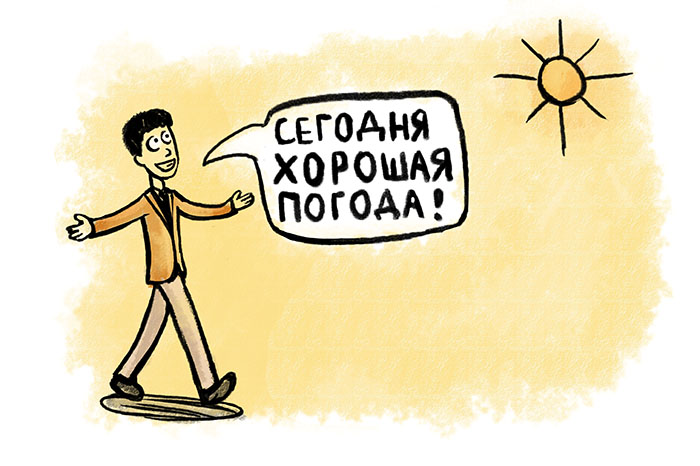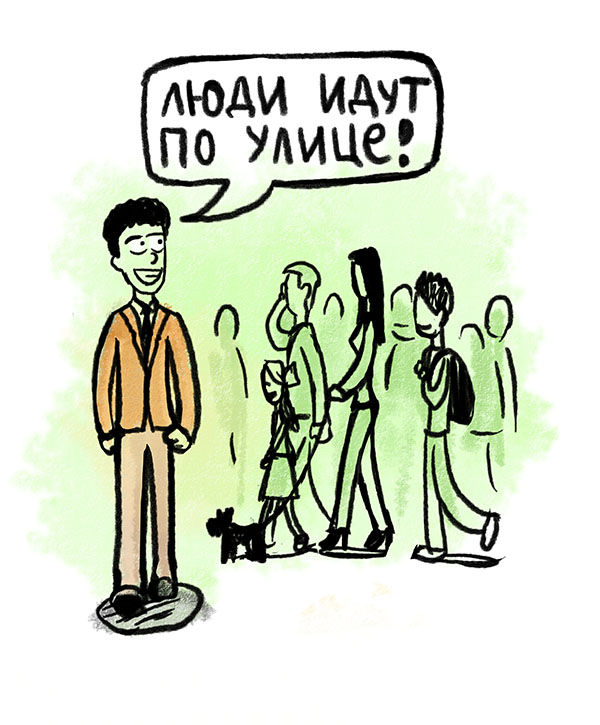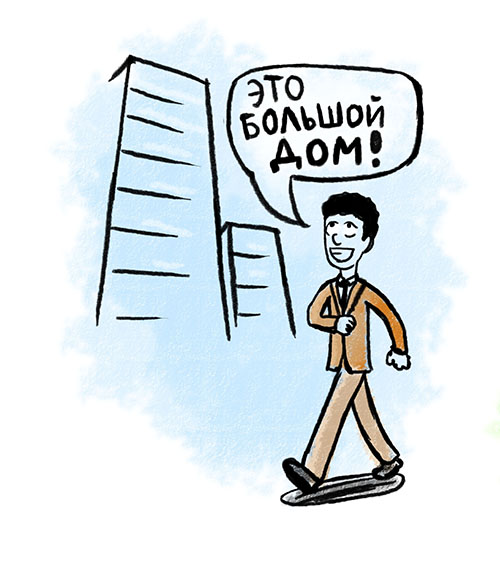Imagine you walk home after work. You probably spend this time thinking about your busy schedule, tomorrow’s meeting, the bills you have to pay etc. Instead of doing that, why don’t you start a conversation with yourself loudly in Russian? Maybe you want to practise the days of the week, the verbs you learned yesterday, or talk about your plans for the evening. If you are a beginner, take a chance to look around you and describe what you see. For example, you can say things like:

Что это? – What is this?
Это большой дом – This is a big house.
Это красная машина – This is a red car.
Сегодня хорошая погода – Today, the weather is good.
Люди идут по улице – People are walking on the street.
This is an example of a multisensory learning method which involves visual, auditory and kinaesthetic elements. You see an object in real life and you pronounce the word loudly while you walk. Research has shown that it is very effective to pair a word with an actual object this word represents. This process is similar to learning a word by associating it with an image. At the same time, you improve your pronunciation as you are forced to speak the language. Also, you can make this method even more powerful by adding an acting element. Pretend you are an actor, or a teacher. Change the tone of your voice, speak dramatically, whisper, shout with surprise! That will even more stimulate your auditory and kinesthetic senses and help you memorise better.
When we walk, the heart pumps faster, circulating more blood and oxygen to our brain. Experiments have shown that people perform better on tests of memory and attention when they walk. Walking on a regular basis also promotes new connections between brain cells and increases the volume of the hippocampus, a brain region crucial for memory (A nice article here). While you walk you can practise not only Russian, but anything you want to learn.
If you don’t walk to work, you may cycle or drive. I often practice Russian on my bike speaking loudly or singing songs by the traffic lights. Don’t be embarrassed by the people around you who may think you went crazy. People don’t care about what you do; they care about their own lives. If someone makes fun of you is because they feel embarrassed to do what you do, even if they know it is right.
Now, think about this. How do kids learn? They use all their senses. They look at something, they touch it, they bite it. They do that at home, in the restaurant, on the street, everywhere. They ask their mum how something is called and repeat a word multiple times. They listen to their voice. Why do you have to learn Russian in silence on a desk? No! Try to learn how the kids learn. Instead of asking your mum (who most probably doesn’t speak Russian), you can ask Yandex Translate or Google Translate on your mobile phone (both are great mobile apps) to remember or learn a new word while you are on the move. That’s all. Keep walking and speak Russian.
PS: The above ideas are also explained in this YouTube video from my talk at Oxford University Russian Society on how to learn Russian.



Когда я была ребенком, я учила стихи шагая туда-обратно по комнате или пела стихи песней, так все запоминалось быстрей и лучше. Поэтому огласна со всем, написанным автором!
Ольга, большое спасибо! Я тоже так изучаю русский язык!